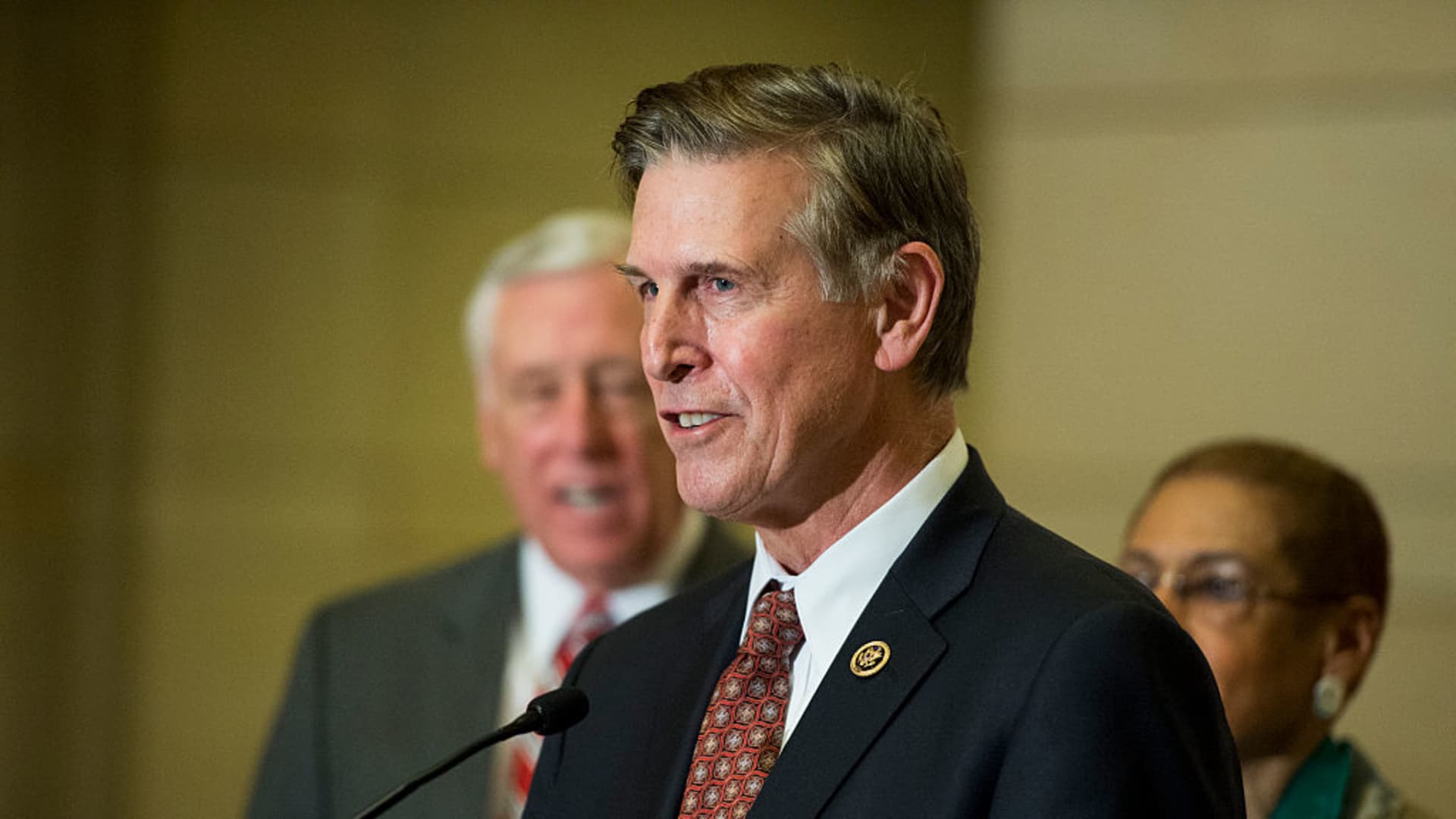Rep. Don Beyer, D-Va.
Bill Clark | CQ-Roll Call, Inc. | Getty Images
WASHINGTON — Don Beyer isn’t the average student at George Mason University. He’s 73 years old. He prefers a notebook and pen to a laptop for note-taking. And he’s a top lawmaker on AI policy in Congress.
The Virginia Democrat found AI fascinating, but the breakthrough came when he realized he could enroll in computer science classes at George Mason University. So he enrolled, starting with the prerequisite classes that will ultimately lead him to a master’s degree in machine learning.
Beyer can only take about one class a semester, as he balances voting on the floor, working on legislation and fundraising with getting his coding homework done. But the classes are already providing benefits.
“With every additional course I take, I think I have a better understanding of how the actual coding works,” he recently told CNBC. “What it means to have big datasets, what it means to look for these linkages and also, perhaps, what it means to have unintended consequences.”
Beyer is part of almost every group of House lawmakers working on AI. He’s vice chair for both the bipartisan Congressional Artificial Intelligence Caucus and a newer AI working group started by The New Democrat Coalition, the largest groups of centrist Democrats in the House.
He was also a member of former Speaker Kevin McCarthy’s working group on AI, which could be resurrected under Speaker Mike Johnson. On the legislative side, he’s a leader on a bill to expand access to high-powered computational tools needed to develop AI.
Crash course
As members of Congress raced to get themselves up to speed on AI this fall with hearings, forums and a dinner with Open AI CEO Sam Altman, Beyer said his classroom time has given him a perspective on what goes on under the hood.
He’s also learning how easy it can be for a small mistake to have a major impact on code. Beyer said one of his daughters, who is also a coder, sent him a big book about debugging programs that was “very, very long.”
“You make big mistakes, then you make stupid little mistakes that take you hours to find. And you realize how imperfect any technology is,” he said. “That’s going to drive a lot of trying to defend against the downside risks of AI.”
Congress is grappling with how to move forward on AI.
In the House, Rep. Jay Obernolte, R-Calif., who served on McCarthy’s AI working group with Beyer, told CNBC he’s spoken briefly with Johnson, R-La, and the speaker is interested in getting the AI group started again soon, after more pressing battles such as government funding are over.
Obernolte said there were a few different directions the House could head in on AI, including enacting digital privacy protections for consumers or deciding whether a new federal agency should oversee AI, or whether each currency agency should handle the issue.
Obernolte, who has a masters degree in artificial intelligence, said there’s no shortage of smart lawmakers on AI, including Beyer.
“Don is wonderful, very knowledgeable, you know, really has a passion for this particular issue,” he said.
‘Time is of the essence’
Another issue Congress has its eye on is the ease of spreading videos and photos that look real but are generated by AI — particularly ones showing events that never happened, or real people saying things they never actually said, which could ultimately impact elections.
Rep. Derek Kilmer, D-Wash., who chairs the New Democrats’ AI working group, said the 2024 election lends fresh urgency to figuring out how to minimize the impact of misleading or false media.
“The implications for the spread of misinformation for the integrity of our public discourse or democracy is significant,” Kilmer told CNBC. “And that is driving this push.”
Senate Majority Leader Chuck Schumer, D-N.Y., recently said “time is of the essence” when it comes to dealing with AI-generated videos and photos. “It may be the thing we have to do first, when it comes to legislation and creating guardrails in AI.”
Still, Beyer is worried Congress won’t move quickly enough to keep up with the rapid pace of new AI models.
“What we’re trying to do is not replicate our failures on social media, where for 20-plus years we’ve not regulated at all,” said Beyer. “Social media has had wonderful positive effects, but also some pretty scary downsides to misinformation, disinformation.”
Beyer acknowledged that due to fights over spending and the House speaker’s gavel, it wasn’t likely Congress would be able to pass AI legislation this year. But he’s hopeful something can move next year, ahead of the 2024 election.

